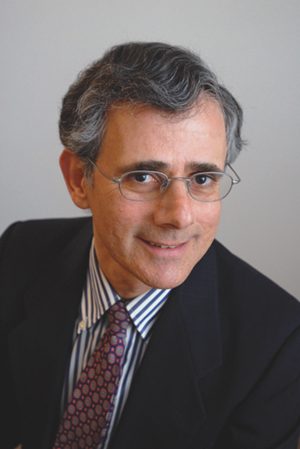It seems odd that we continue to debate the recording of litigation-related medical assessments while video and audiotaping become a staple of society.

The latest skirmish in this debate arises in
Alladina v. Calvo, a May 6 decision of Superior Court Master Benjamin Glustein allowing a defence motion to compel the plaintiff to attend a medical assessment before a psychiatrist and dismissing the plaintiff’s motion to conduct the assessment by a different practitioner or, alternatively, to record it.
In doing so, Glustein followed pre-2010 decisions holding that recording defence medical assessments shouldn’t be routine and is only warranted on the basis of “substantial and compelling reasons.” More significantly, he refused to follow the more modern approach exhibited by Master Donald Short in
Bakalenikov v. Semkiw.
Short considered the amendment to Rule 53.03 that says experts must not be advocates for either side. He noted a Superior Court judge had previously criticized the psychiatrist chosen by the defence to conduct an assessment of the plaintiff for providing his evidence as “an advocate for the party calling him as a witness” and who had his opinions “disregarded by the court for bias and advocacy for the defence” on at least three occasions.
Short took those judicial findings seriously when he stated: “If a judge of the court has made a finding with respect of an individual expert in the past, that is the finding of the Superior Court.
How can the court abdicate any responsibility to audit the performance of such experts in light of the expressed intent of the amendments made to Rule 53?”
Accordingly, Short concluded the psychiatrist’s “objectivity needs to be demonstrated” and ordered that the examination be audiotaped.
Glustein had before him similar evidence concerning the doctor proposed by the defence. Evidence disclosed that the plaintiff had found 66 cases in a Westlaw search that considered psychiatrist’s evidence. In 11 of these cases, courts or tribunals didn’t accept parts or all of the doctor’s evidence. In doing so, they made comments that the doctor’s “evidence had a flavour of advocacy,” “smacks of partiality” or wasn’t “balanced.”
Of course, that isn’t evidence of bias or that the doctor is incompetent. But with 11 negative remarks in 66 cases, shouldn’t we require proof of the doctor’s objectivity? Glustein didn’t think so, concluding there were no “substantial or compelling reasons to require videotaping or audiotaping to ensure fairness.”
Glustein found that any taping of the defence examination would provide an unfair advantage to the plaintiff since there was no recording of the plaintiff’s examination. The reasoning appears to run through other cases denying similar motions. But what would the harm be in allowing a recording of the defence examination given that the introduction of the tape would be at the discretion of the judge?
The reluctance of defence lawyers and experts to allow taping of assessments has always puzzled me. The tape protects the doctor from allegations of wrongdoing by the patient. Why wouldn’t an expert want irrefutable evidence of what was said and the examinations conducted during an assessment? Further, as stated in
Moroz v. Jenkins, “The ability to review the defence examination and compare it to the report should in most instances promote settlement by demonstrating to both sides the correlation between what the psychiatrist saw and heard and his or her conclusions.”
Yet doctors resist recording their examinations. Their arguments ring hollow, however. For example, we hear patients may perform in front of the camera. But if doctors can’t adequately deal with performing patients, surely we can leave that to the judge or jury to sort out.
Patients may not be forthcoming knowing there will be a recording. Yet it’s the patient who has requested the recording, so how can that be a valid consideration? Could it be that defence experts don’t want an accurate record of their examination so as to make it more difficult for plaintiffs to dispute their findings?
Common sense dictates recording defence examinations when plaintiffs reasonably ask for it.
Alan Shanoff was counsel to Sun Media Corp. for 16 years. He currently is a freelance writer for Sun Media and teaches media law at Humber College. His e-mail address is [email protected].

 The latest skirmish in this debate arises in Alladina v. Calvo, a May 6 decision of Superior Court Master Benjamin Glustein allowing a defence motion to compel the plaintiff to attend a medical assessment before a psychiatrist and dismissing the plaintiff’s motion to conduct the assessment by a different practitioner or, alternatively, to record it.
The latest skirmish in this debate arises in Alladina v. Calvo, a May 6 decision of Superior Court Master Benjamin Glustein allowing a defence motion to compel the plaintiff to attend a medical assessment before a psychiatrist and dismissing the plaintiff’s motion to conduct the assessment by a different practitioner or, alternatively, to record it.